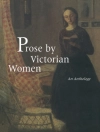In ‘The Complete Non-Fiction Writings, ‘ Oscar Wilde presents a compelling collection that illuminates the breadth of his intellectual prowess and artistic vision. This anthology encompasses a range of essays, critiques, and speeches, showcasing Wilde’s distinctive aestheticism and wit. Written during the late 19th century, a period marked by shifting cultural values and a burgeoning interest in social commentary, Wilde’s prose deftly navigates themes of beauty, morality, and the complexities of human experience, all presented with his trademark epigrammatic flair. Each piece serves as a testament to his belief in the transformative power of art and the necessity of individual expression within societal confines. Oscar Wilde was a quintessential figure of the Victorian literary landscape, celebrated not only for his plays and novels but also for his incisive commentary on life and society. Born into an intellectually stimulating environment, his formative experiences fueled his fascination with aesthetic ideals and societal critique. Wilde’s own struggles with societal norms and personal crises enriched his writing, endowing it with a profound depth rarely matched by his contemporaries. This collection is indispensable for any reader yearning to dive deeper into Wilde’s thoughts beyond his iconic prose. It is a treasure trove of insights that resonates even today, offering a rich tapestry of wit and wisdom that invites readers to ponder the intersections of art, society, and individual identity.
A propos de l’auteur
Oscar Wilde (1854–1900), the illustrious Irish playwright, poet, and author, is celebrated for his brilliant wit, flamboyant style, and infamous imprisonment for gross indecency. He was a leading proponent of the aesthetic movement, which advocated for art’s sake. Wilde studied at Trinity College, Dublin, and later at Magdalen College, Oxford, where he deeply engaged with aesthetic and decadent movements. His literary successes began with poetry, culminating in the 1881 publication of ‘Poems.’ However, it was his razor-sharp plays, such as ‘The Importance of Being Earnest’ and ‘An Ideal Husband, ‘ that sealed his fame, projecting a satirical take on Victorian society. ‘The Picture of Dorian Gray’ remains his only novel, a classic that melded gothic and philosophical themes. Wilde’s essays and dialogues, collected posthumously in ‘The Complete Non-Fiction Writings, ‘ encompass his broad intellect and art criticism. These works showcase his eloquence and the development of his thought on art, criticism, and society. Notable among these is ‘The Decay of Lying, ‘ a dialogue which satirizes the insincerity of late Victorian society and presents Wilde’s view in favor of romanticism over realism. Oscar Wilde’s legacy transcends the scandal that overshadowed his final years, granting him status as a martyr and a symbolic figure in the fight against the repression of homosexuality. His literary contributions continue to be admired for their biting wit, their challenge to societal norms, and their profound insights into human nature and the role of art.












